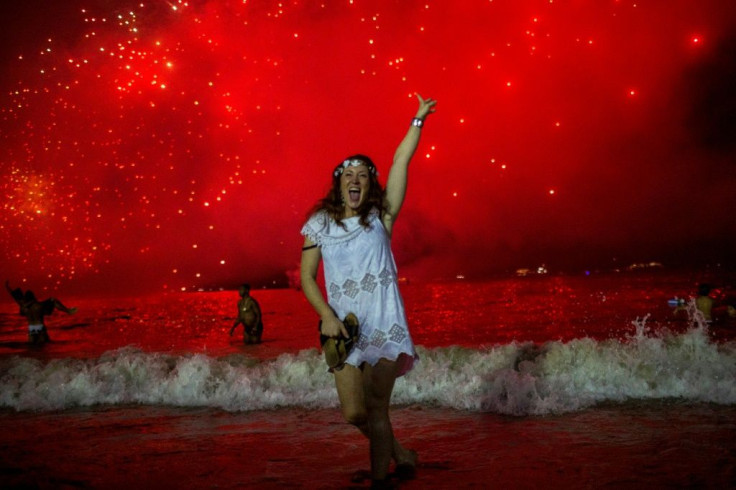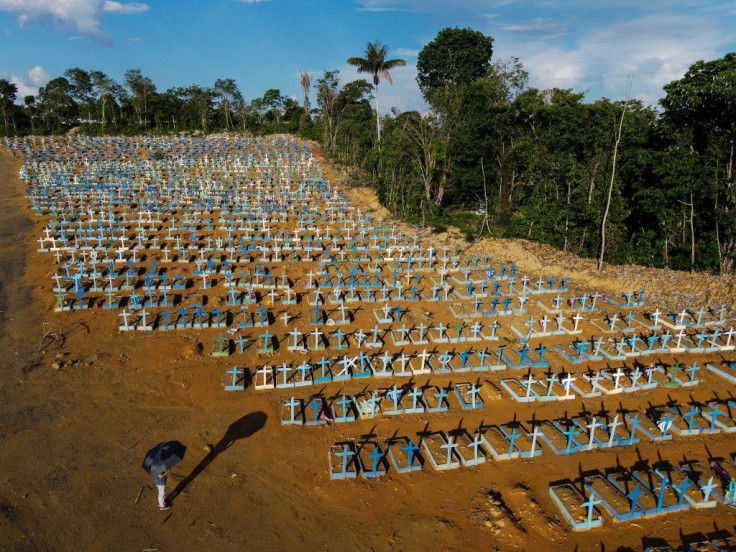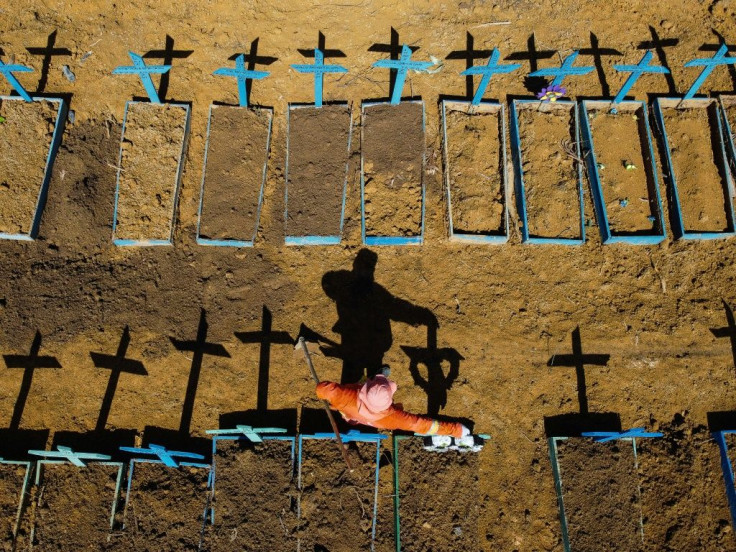New Year Festivities Expose Brazilians To Pandemic Surge
In a country used to throngs of people seeing in the New Year in packed beaches and bars, Brazilians face the threat of a surge in coronavirus cases at the end of 2020, analysts warn.
Brazil has already recorded the second largest number of Covid-19 deaths in the world with more than 192,000, but worse may yet come with mixed messages emanating from authorities ahead of the New Year.
The South American country "could register a greater increase (in deaths and cases) than it had during the worst moment" of the pandemic, said Luiz Gustavo de Almeida, a microbiologist at the University of Sao Paulo.
"The pandemic peak was between May and July, which was when there wasn't a lot of movement and we looked after ourselves more. Now there are many cases and people are acting as if there wasn't a pandemic."
It's the middle of summer in the southern hemisphere and temperatures are high with beaches often crammed.

In recent days, numerous videos have been shared on social media showing revellers enjoying a night out throughout the country, mostly without wearing face masks.
Television channels have even shown live images of police closing bars full of customers, notably in Sao Paulo.
It's the largest city in Brazil and authorities there have ordered non essential businesses to close from January 1-3.
In Rio de Janeiro, which traditionally hosts a mega party with spectacular fireworks on the world renowned Copacabana beach on New Year's Eve, local authorities have said they will erect barriers and police road blocks to prevent people from reaching the beaches on December 31.
However, not every region is singing from the same song sheet.

In Manaus in the north, authorities caved to pressure from businesses and allowed them to stay open on Christmas Eve.
Streets were teaming with people despite hospitals in the city teetering on the brink of saturation due to the pandemic.
Deep in the Amazon jungle, Manaus is once again faced with its public cemeteries struggling to deal with new burials as hearses line up outside entrances waiting to bring in coffins.
Nightmare scenes such as these haven't been seen since the peak of the first coronavirus wave in Brazil.

It's this context that explains the indignation that met rumors that superstar footballer Neymar was planning to hold a private New Year's Eve party at his luxury mansion in Rio de Janeiro state for 500 guests.
Brazil is on the brink of repeating "the same thing as in Europe at the end of summer" when a general relaxing of attitudes led to a new spike in infections, said De Almeida.
"We need to educate people to observe social distancing with a lot of information and transparency," said Natalia Pasternak, president of the Cuestion de Ciencia (Question of Science) institute.
"Covid is a societal issue and the solution can only come from society."
However there is much resistance to restrictions amongst Brazilians, fueled in part by far-right President Jair Bolsonaro who has consistently downplayed the pandemic's threat.
"I think the media exaggerates and some authorities lie. Look how long we've been in this, we cannot continue to put our lives on hold for a disease," said Maria Rocha, who runs a clothing store in Sao Paulo.
For Julio Croda, an infectious diseases specialist at the Oswaldo Cruz foundation, respite will come from a vaccine but he says Brazil is "very late" in beginning to immunize its people.
In Latin America, Mexico, Argentina, Chile and Costa Rica have already started vaccinating their populations but Brazil does not even have a start date.
Brazil has announced plans to buy 360 million vaccine doses, including 210 million of the AstraZeneca/Oxford jab that will be produced locally by the Oswaldo Cruz foundation.
Brasilia will also buy 70 million doses of the Pfizer/BioNTech vaccine.
Yet no laboratory has yet presented an authorization request to the health regulatory body Anvisa. Without one, no vaccination campaign can begin.
To vaccinate an entire population "you need political will, planning and logistics. I've not seen any of that so far," said Pasternak.
© Copyright AFP 2024. All rights reserved.





















